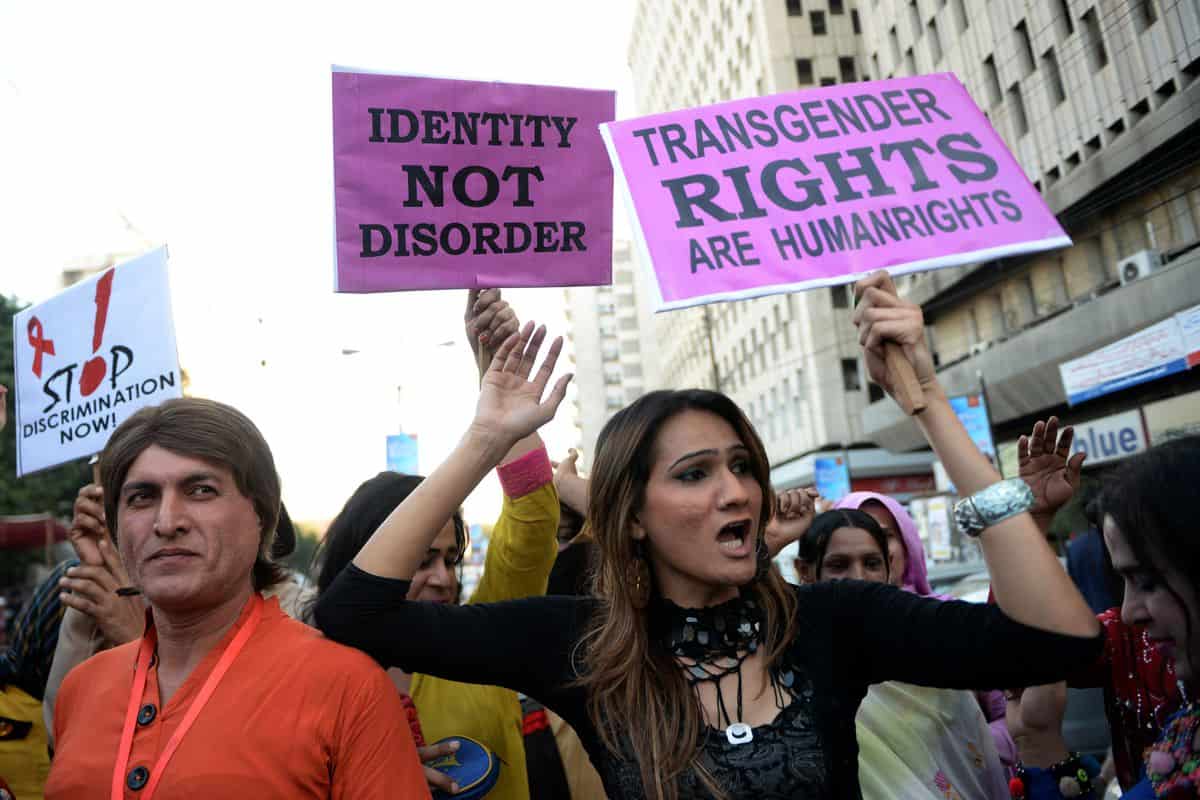Transgenders are rarely in the news with positive headlines; rather it is the violence done to them that is constantly being highlighted. During the pandemic, there was fear that there would be discrimination against them as the infamous case from a few years ago, when the hospital staff was unwilling to treat a trans-patient, is still fresh in the memory of so many. The acts of violence in the news don’t make it easy to forget either – just a few months ago, a group of transgenders were fired upon, resulting in the death of one of them. But while these happenings are unfortunately all too common, there are some success stories: Nisha Rao became Pakistan’s first trans-lawyer and is working towards becoming Pakistan’s first trans judge as well, Aisha Mughal is the first transgender to serve as a consultant in any Federal Ministry of Pakistan and last year, represented Pakistan at the United Nations and of course, there’s Marvia Malik – Pakistan’s first transgender news anchor. These success stories prove that Pakistan is on the way to being more tolerant, or so one can hope. But does our current legislation adequately support our transgender community? And what more can we do to help? Keep reading to find out:

Current Legislation
2009 was the year when the country allowed transgenders to change their genders legally, but 2018 marked a further progressive moment in the history of Pakistan. In May 2018, Pakistan passed a landmark bill which provides the transgender community fundamental rights. Activists such as Mehlab Jameel and a few members of Pakistan’s Parliament and policymakers played a huge role in the current legislation regarding transgenders.
The Transgender Person (Protection of Rights) Act of 2018 gives transgenders the freedom to decide their gender and make their identity official on their legal documents such as their ID cards, driver’s licenses and passports. The bill also interdicts all kind of discrimination done against them in public places, work environments and schools. When the bill was first announced in 2017, activist Mehlab Jameel applauded the country’s progression, but the original bill wasn’t all it seemed at first glance.
The original bill was based on genitals and stated that doctors, judges or psychiatrists would decide if someone is a transgender or not. Mehlab and other activists had to put forward a plea to prove that such medical exams are against human rights – the activists held meetings with trans communities and former Senator Farhatullah Babar in order to cause an amendment in the bill. There was even a promise made by the supreme court that they would give a few transgender individuals jobs.
In 2019 the current PM Imran Khan instituted a free health care scheme for transgenders. The Sehat Insaf card is a part of the Sehat Sahulat’s program and works on improving health care for minority groups and provides medical treatment cost-free for marginalised groups in Pakistan.
But Is This Enough?
The passing of the Transgender Persons (Protection of Rights) Act made Pakistan the first Asian country to legally recognise self-perceived gender identity. And while the historic bill establishes transgenders as electoral candidates, it doesn’t address a far deeper problem present within the Pakistani society – the mentality of its people.
Transgenders are still being kidnapped and raped, sold for monetary gain and being attacked in their own homes. While the bill marked a step in the right direction, the manner in which people view transgenders still has to be dismantled. They still get shunned and abandoned by their own families, and are amongst the most marginalised groups in the country. The government might be on the right path, but it will take a few years for effective change to be implemented in support of the transgender community – that’s why it’s so important to do our part in helping them.

What Can We Do To Help?
- Support Local NGO’s: Nisha Rao is not only the first transgender lawyer in our country, but also the founder of the NGO Trans Pride Society. This organisation is contributing and working towards a better future that empowers transgenders in Pakistan. Even sending them a generous message/e-mail to show your appreciation towards them can be an act of kindness in the slightest.
- Donate: There are charities which provide food, support and shelter to transgenders – however they have very limited resources, especially since the pandemic. Global Giving has started a project in which people can donate a relief package to 250 HIV-positive transgender youth. A relief package consists of COVID-19 prevention items, food supplies and milk. Wajood is also a charity that works towards promoting transgender rights and have on multiple occasions, worked with the government to bring about change.
- Sign petitions which strive to give equal rights to the transgender community in Pakistan in regards to education and employment – even the smallest of effort counts.
- Educate Ourselves: Read books, briefing papers or articles regarding the community and their struggles. Educating yourself will give you a broader view on what they go through and how they need to survive in society.








What do you think?
You must be logged in to post a comment.